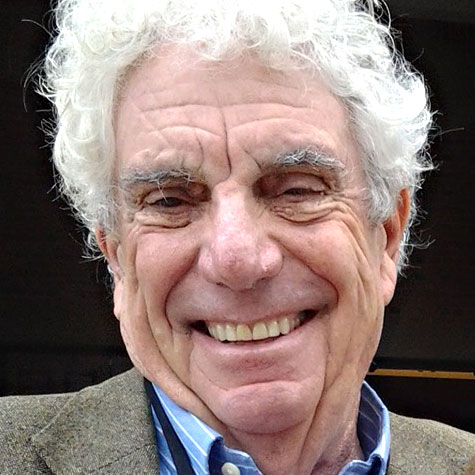By chance, Bet Tzedek Legal Services sponsored a program on the American Patriot Act just about the
same time readers were beginning to get their copies of Philip Roth’s “The Plot Against America.”
It was a perfect combination. The Patriot Act, hurriedly passed by Congress and signed by President Bush after Sept. 11, 2001, gives the federal government new power to find out about our private, business and academic lives. Roth’s book projects what happens when government runs wild with such power.
Both the book and some of the implications of the Patriot Act touch the insecurity that hides deep in the hearts of many Jews — that our nation’s constitutional protections could vanish, and with them the safety and opportunity that brought Jews to America.
Nicholas Lemann, Washington correspondent for The New Yorker and dean of the Columbia Graduate School of Journalism, made the connection between Bush and Roth quite nicely when, in writing about the book, he described the perpetual wariness of the Jewish soul: “Emotionally, it could happen here. It could happen anywhere, any time. It has happened practically everywhere. It’s also the case that President Bush activates in many Jews the same emotions that Roth activates in ‘The Plot Against America.’ He may have activated them in Roth himself.”
Perhaps that explains the interest of a substantial audience at Sinai Temple on Oct. 4 for the symposium “Pursuing Justice and the War on Terrorism.” For the past 30 years, the event’s sponsor, Bet Tzedek has enlisted the constitutional guarantees of a fair justice system on behalf of Los Angeles’ poor.
The Patriot Act erodes these guarantees by greatly increasing the power of federal law enforcement agencies to wiretap, monitor Internet use and e-mail communications, obtain records of library borrowing and bookstore purchases and gather information on customers from financial institutions and other businesses. The government has new power to investigate foreigners, meaning immigrants can come under heavy scrutiny. In the past, the constitutional guarantees weakened by the Patriot Act have often — but not always — protected political, religious and ethnic minorities from the tyranny of state oppression that has periodically taken hold of federal, state and local governments in the United States.
Roth’s “The Plot Against America” takes place in 1940. The new president is Charles Lindbergh, Hitler admirer and anti-Semite, who begins exporting Jews from Jewish neighborhoods in the Northeast to areas where they would be a minority — the beginning of an American Holocaust.
Most Jews undoubtedly consider such fears far-fetched. I do. But a lot of Muslims don’t, particularly immigrants and children of immigrants who came here from the Middle East. They have rational and justified fears about the government’s growing ability to snoop and to arrest. Even the most assimilated Jew might, consider that, historically, Jews have been in the same boat as Muslims — and could be there again.
Such catastrophic thoughts were not expressed by the panelists, Jamie S. Gorelick, a member of the 9/11 Commission; Rabbi Elliot Dorff, a member of the Conservative movement’s Committee on Jewish Law and Standards; and Viet D. Dinh, the main author of the Patriot Act.
Dinh, who was an assistant attorney general when he wrote the Patriot Act and now is a professor at the Georgetown University Law Center, is an upbeat, articulate man who, while fleeing as a boat child from Vietnam, survived harrowing experiences and poverty. To Patriot Act supporters, his life story counters charges that the law is a threat to immigrants.
His personal story is inspiring, but the implications of his words at the symposium were troubling. The Sept. 11 attacks, he said, were an assault on “the essential order” of a nation. And the cops who preserve such order are not the enemy.
“The single greatest threat is from Al Qaeda, not law enforcement,” he said. At another point, he said, Americans might have to give up some liberties in the face of danger.
Is that necessary? No, said Gorelick. She, like Dinh, served in the Justice Department where she was deputy attorney general before her appointment to the 9/11 Commission. Speaking from those two perspectives, she said there were “laws and procedures in place” that could have caught the Sept. 11 terrorists.
And Dorff said, “If we protect ourselves at the expense of our national character, what have we protected?”
A few days after the seminar, I bought Roth’s book. His 1940 Newark was foreign to me.
I never had to fight my way through anti-Semitic gangs on my way to school or be deprived of a good assignment by an anti-Semitic boss.
But as a reporter, I have covered cops, courts, the civil rights movement, urban riots and student rebellions. I have seen the fragility of constitutional guarantees of due process when society feels threatened by protestors, rioters, by crime and, now, by terrorists.
They can bend and break, as Roth, writing from the depths of Jewish paranoia, envisioned. Gorelick and Dorff hinted at the same thing in their much more reasoned manner. The words were different but the message was the same.
Bill Boyarsky’s column on Jews and civic life appears on the first Friday of each month. Until leaving the Los Angeles Times in 2001, Boyarsky worked as a political correspondent, a metro columnist for nine years and as city editor for three years. You can reach him at bw.boyarsky@verizon.net.






















 More news and opinions than at a Shabbat dinner, right in your inbox.
More news and opinions than at a Shabbat dinner, right in your inbox.